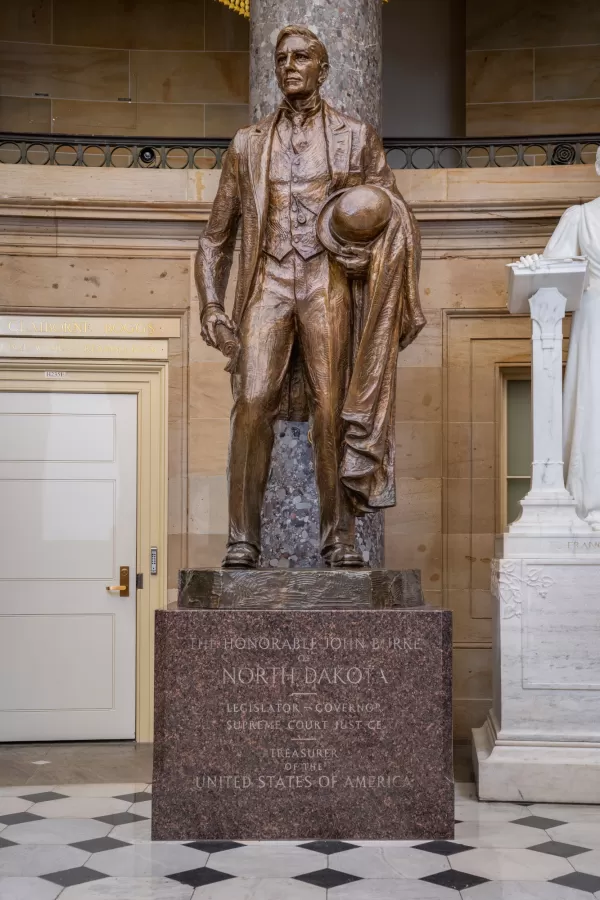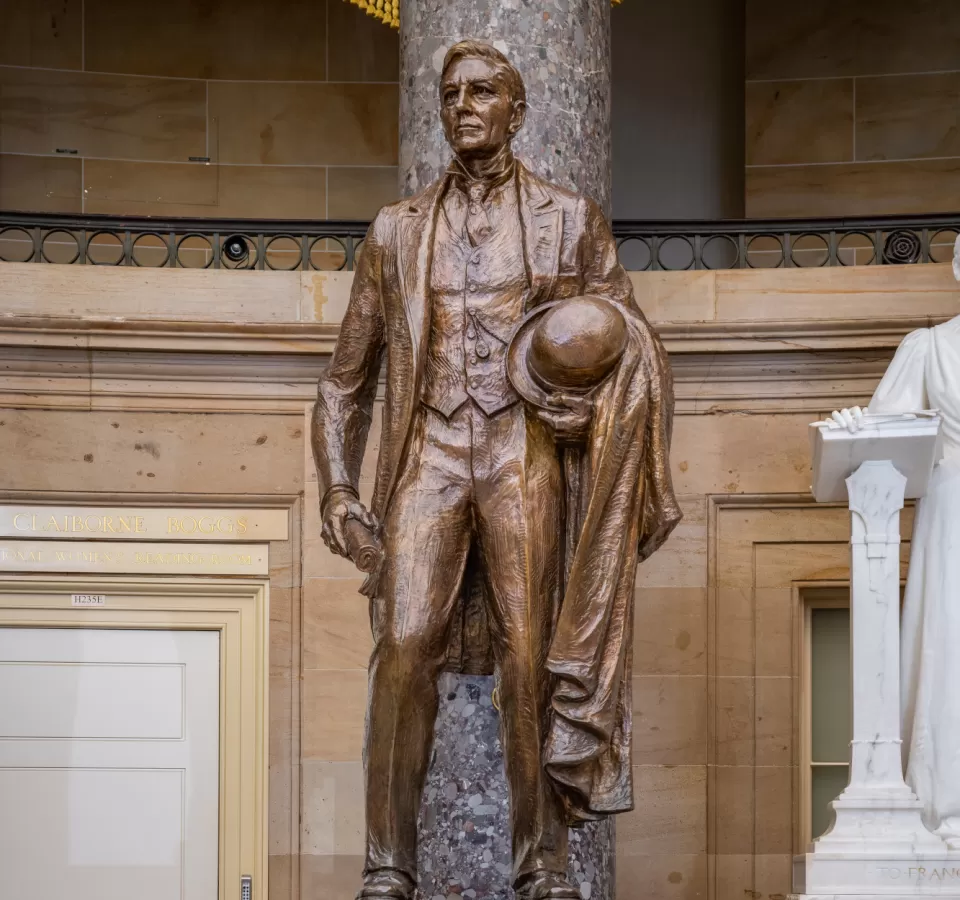This statue of John Burke was given to the National Statuary Hall Collection by North Dakota in 1963.
John Burke was born on February 25, 1859, in Sigourney, Iowa. He was educated in local schools and received his law degree from the University of Iowa in 1886. In 1888 he migrated to the Dakota Territory, where he worked as a harvest hand and schoolmaster. He began his law practice in his hotel room and helped publish the town newspaper. By 1889 he was a successful lawyer and was elected Rolette County judge. He later became state's attorney of Rolette County. Burke served in the North Dakota House of Representatives in 1891 and in the state Senate from 1893 to 1895.
Nicknamed "Honest John," Burke was a man of unquestioned integrity. As governor from 1907 to 1913, his great accomplishment was ridding North Dakota of corrupt political control. He initiated many reforms, including regulation of lobbying, establishment of a tax commission, and laws providing for the first primary election. He supported legislation regarding child labor, juvenile courts, and an employment compensation commission. His concern for the public welfare was reflected in food and sanitation laws; a public health law; and regulation of medicine, surgery, and public utilities.
In 1913, he was appointed treasurer of the United States by President Woodrow Wilson and served until 1921. He resumed law practice in Fargo. In 1924, he was elected a justice on the Supreme Court of North Dakota, serving as chief justice from 1929 to 1931 and from 1935 to 1937. He died on May 14, 1937.

